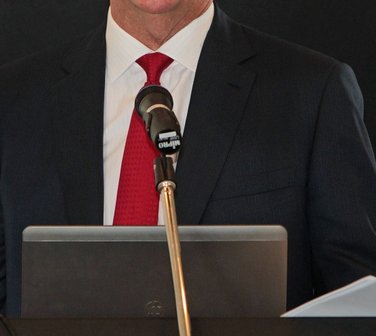Getting touched by an angel
Three angels walk into a bar. It may not seem like angelic behaviour, but clearly, they are not your average kind of angel.
They are angel investors, bringing to life Perth’s tech start-ups with an injection of their capital, contacts and experience, in return for a stake in the emerging business.
And they are meeting at Angels’ Cut bar on St Georges Terrace, beneath the winged guardian that overlooks the crowd of bankers, brokers and entrepreneurs seeking out a midweek drink.
Greg Riebe, Ray Hart and Jim Tweddle have contributed a lot to start-up ventures.
Riebe, the founder of the WA Angel Investment Association, says he finds some of his start-ups at the association’s quarterly pitch nights, which are attended by about 40 other investors. “In WA, we very much have a tradition of investing in exploration stocks, predominantly through the ASX, ” says Riebe, former executive with Entrepreneur in Residence.
“Angel investing is private direct investment. It’s a bona fide asset investment class, and it’s growing.”
The quarterly pitch night allows entrepreneurs seeking about $250,000 to $1 million to make a case for funds to a group of up to 40 investors.
Typically, about three or four individuals or groups will make a half-hour pitch, but unlike reality TV shows about such events, the entrepreneurs leave the venue while the investors privately brainstorm the possibilities.
Usually, about two-thirds of the investors will stay for discussions about the risks, the potential for success and the non-material value they can bring to the project, such as contacts and experience.
But it’s not a case of one-in, all-in, with each investor making an individual investment assessment.
A viable project will usually attract group of five or six investors, who then pool their money and skills to help get it off the ground.
Sometimes, even half-a-dozen investors can fail to pull in enough money.
But Riebe says the group has access to one other vital piece of the jigsaw that is usually outside the entrepreneur’s reach: corporate investors.
During his eight years at the helm of Entrepreneurs in Residence, he oversaw the group’s $10 million in direct investment, and raised corporate-backed co-investments worth $35 million.
“We put in $100,000 into one venture and we were able to bring in a corporate fund to put in another $700,000, ” Riebe says.
“The corporate fund was happy to do that because they were satisfied that we (the angel investors) were bringing some smarts into the network.”
Riebe says this high-risk asset class is not for the faint-hearted because it has a high failure rate. Though he believes most manage to double or triple their investment over eight years, if they spread it across several different investments.
“If you invest in 10, you are likely see three or four fail, a few will break even, some will make a little bit of money and only one will make a serious return, ” he says.
“When you average that out across the whole lot, you will tend to find you will find two to three times your investment in total, in your portfiolio.”
The risk is not all about money, with not all investors behaving as angelically as their heavenly titles would suggest.
Christine Kaine, who runs a match-making business between investors and entrepreneurs, warns the investment vehicle contains potential pitfalls for both investors and entrepreneurs.
“Some people get to a certain age and think, shall I get a Ferarri, take a mistress or become an angel investor? It sounds exiting, but not everyone knows what they are doing, ” Kaine says.
Kaine, who set up Business Angels as a national service 22 years ago, says some investors have been guilty of demanding an unfair amount of equity, and sometimes an exorbitant on-going salary, from start-ups desperate for capital.
Riebe agrees this can happen but believes networks counter this problem, with healthy peer pressure stopping investors from being greedy.
Kaine says investors sometimes try to dictate how the business should develop, without listening to the entrepreneur.
On the flip side, entrepreneurs can be guilty of seeking the lion’s share of equity out of a stubborn and sentimental attachment to their business idea, even in situations where it would not get off the ground without investment.
Kaine is adamant that a partnership cannot work well where one party insists on having an upper hand, and often refuses to take someone on her books if this is a requirement.
She says a perfect match between entrepreneur and investor weighs up a number of factors, including skill sets and personalities.
“They are usually weighted in a particular way, for instance, if an investor has a strong industry networks to facilitate introductions to market but doesn’t tick other boxes, it is still a worthwhile introduction, ” she says. “Sometime businesses take on several investors to cover all the bases.”
© The West Australian
More Small Business news: smallbusiness.yahoo.com









